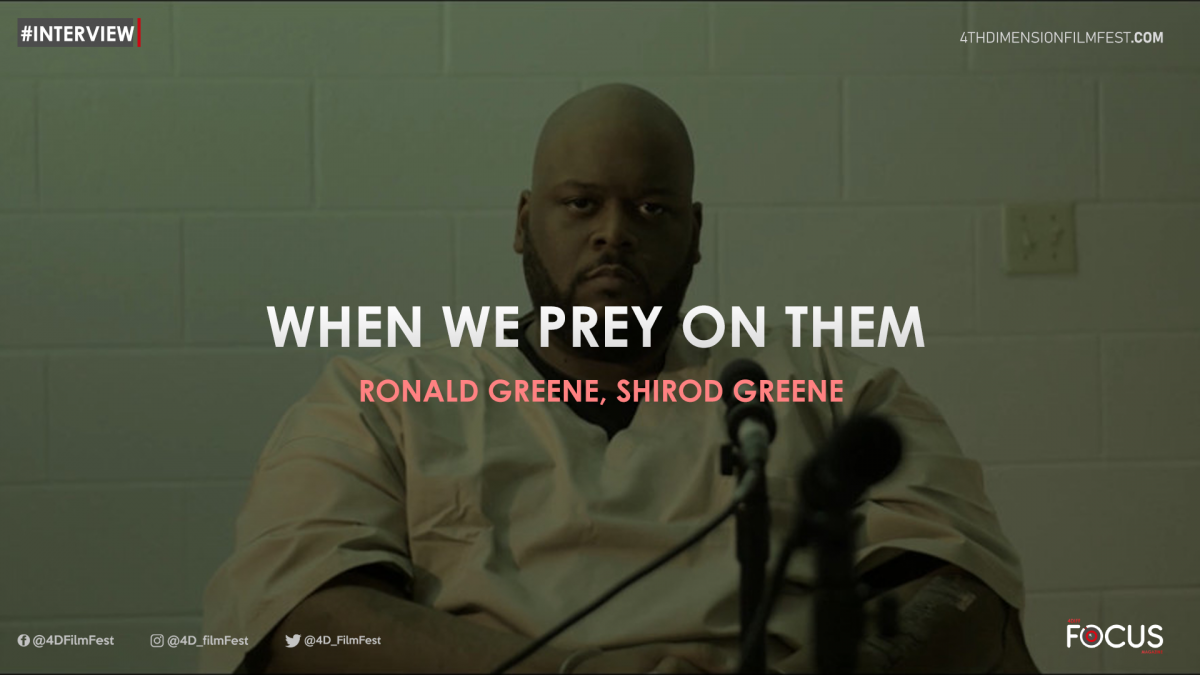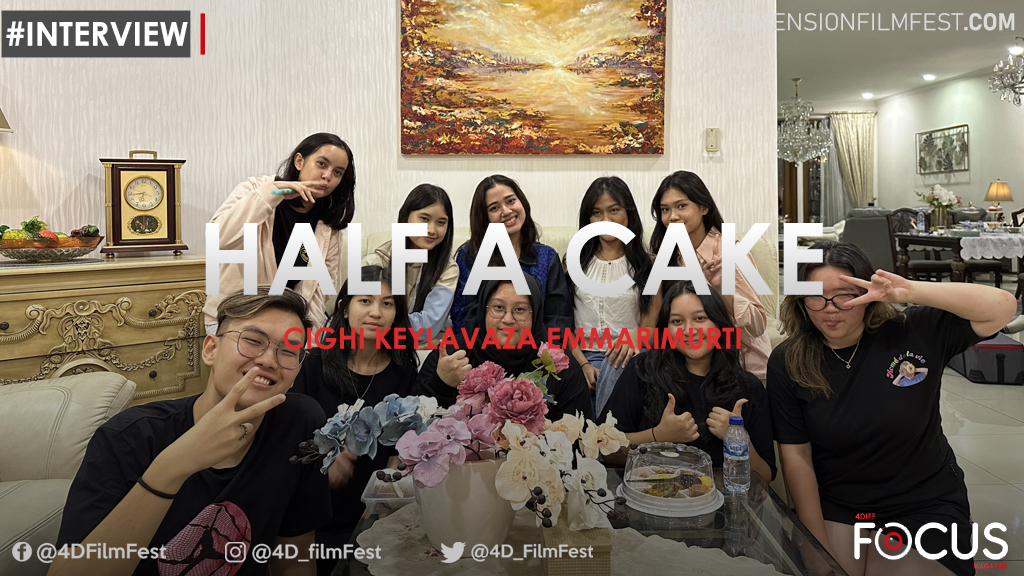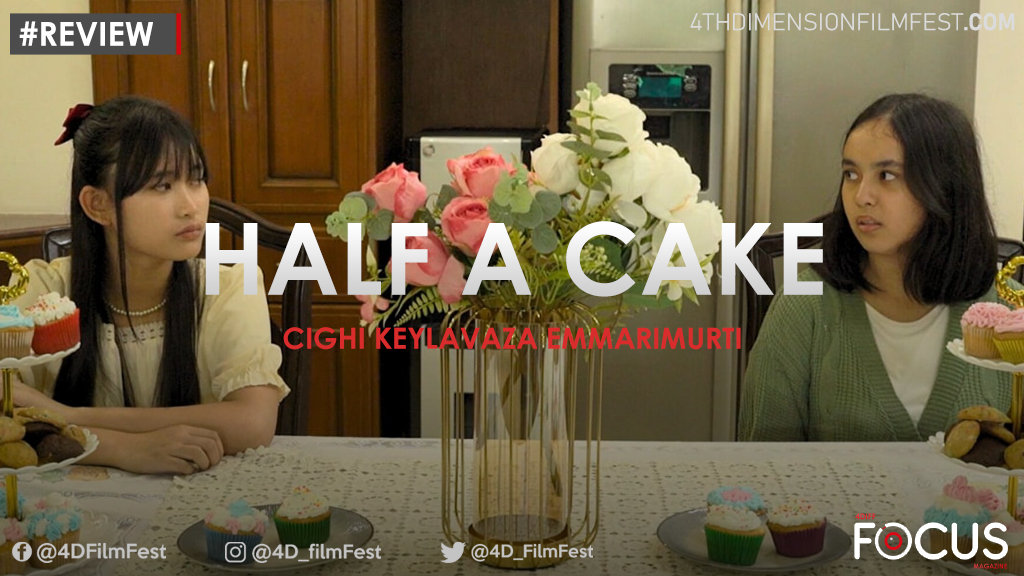Hello Ronald! The film was great! The content was so relevant in today’s world. I’d love to know why you picked this story? Which element in the narrative attracted you the most?
Ronald: After the unfortunate murder of George Floyd, I could no longer sit idly by and do nothing. I felt there were more than enough people marching in the streets. The best thing I felt I could do was to use my art to create an attention-getter in hopes of putting everyone on the same level.
As you two direct the movie together, was there any difference of opinion on the set? How do you guys address and solve such issues?
Ronald: We work similarly to The Cohen Brothers, with myself working with the actors primarily and Shirod working behind the camera. We have never run into any issues because we both understand and believe in the importance of preparation. Coming to the set knowing what we want to do, we are ready to rock and roll when we get to the set. However, we do leave room for inspiration, like when Shirod said hold up, I need to get a shot that was not on the list when we were shooting A Monster. Shirod saw a genius shot and captured it in less than four minutes. It was amazing!
Was it tough to adapt the story into the film? Ronald, I’d like to know, according to you, what qualities should a good adaptation have?
Ronald: This film started out as a feature-length film that we would need to work with a studio to complete. Then I re-watched Tom Hardy in “Locke,” directed by Steven Knight. The entire film takes place in the car as he is driving to a far destination. After seeing that, I realized that if the bulk of the film is in the interrogation room, we can tell a great part of this story.
The content of the film is very important and personal to both of you. Writing and crafting the story might have been tough for you guys. I’d like to know what kind of approach you guys keep while making a film that shows such aspects.
Ronald: For us it’s about knowing why you are setting out to tell a story. Where you want to go and how you’d like to get there. It’s also about always serving the story and not yourself. Having a vision and seeing the film in your head.
Ronald, Which director inspires you the most?
Ronald: Ridley Scott, F. Gary Gray, Reginald Hudlin, Ryan Coogler & David Fincher
Shirod: I would say Christopher Nolan is one of my favorites, but Ryan Coogler & Morgan Cooper helped me understand that being a film director is possible no matter where you come from.
The movie carries a positive message, gives a sense of inclusiveness. Is this possible to see the world this way? Even after the struggles and pains a person of colour goes through!
Ronald: It’s definitely possible, but everyone has to do their part. That is the part that remains unknown. Unfortunately, there are those that do not care and don’t want a change to come. I’m hoping our film give a perspective that some may not had before they saw the film.
What motivates you to make a film Ronald? What kind of stories do you wish to tell?
Ronald: Currently I write what fascinates me! Time and time again my fascination takes me from the blank page to the film’s release!
Ronald: I have all kinds of stories to tell. Ranging from small independents to big-budget epic films. It is just about getting the opportunity to gain access to the right resources to show and prove we can deliver films like Michael Bay, Ridley Scott, Paul Thomas Anderson, and Ryan Coogler, just to name a few.
If you could change the characteristics of any character from the film, whom would you pick and why?
Ronald: Officer Miller because in his mind, with his badge, he is an instant GOD. He feels he is judge, jury, and executioner.
What project are you two planning next?
Ronald: My next two films are The Side Chick and Meet Dezmon. I’m also shopping one of the three television shows I created to a few networks.
Shirod: Im finding time to finish the script to my next film in between other things. I cant really speak on the concept yet, but its bigger and will definitely challenge everything I’ve learned thus far.
I’d like to know if you guys have ever faced discrimination! What would you suggest our young readers do in such situations?
Ronald: Unfortunately, I have. I’ve worked for some prominent companies, and no matter how hard I worked and how well I performed, I would only get so far. I would encourage your readers to read up on their rights, learn them, understand them like its’ your favorite song or film. Many of us have smartphones; information is at our fingertips. But you have to want it!
Shirod: Its been the same for me. No matter where I go the ladder of opportunity always has a peak. I realize that regardless of where I land I will always have to create opportunities for myself. Its just harder in general. The stories about being found and being taken under someones wing has yet to happen. My advice would be work for it harder than you wish for it and stay consistent.
What is the biggest obstacle, according to you two, in filmmaking? Especially if one is an independent filmmaker.
Shirod: I would say my biggest obstacle would be finding proper resources such as locations and people who are just as passionate about what you’re trying to create as you are. Its especially hard being independent because people don’t know who you are. They don’t know the quality of your work and they tend to not take you serious. Being independent also means that a lot of the people involved are friends, and family. Willingness to help and passion are two different things and while we are grateful for all of the help along the way, it can drag out the production process having to double check to make sure things are done in a way that doesn‘t affect the end result.
Ronald: I agree with everything my brother just said. The only thing I would add on is funding. I use my own money to fund projects which means sometimes there is no vacation or some other things I would love to enjoy. The good thing about it is I have now acted as the studio, so I understand how to hone in the creative process and be sensible about spending money.




